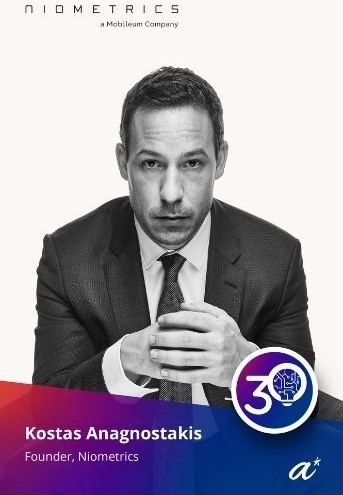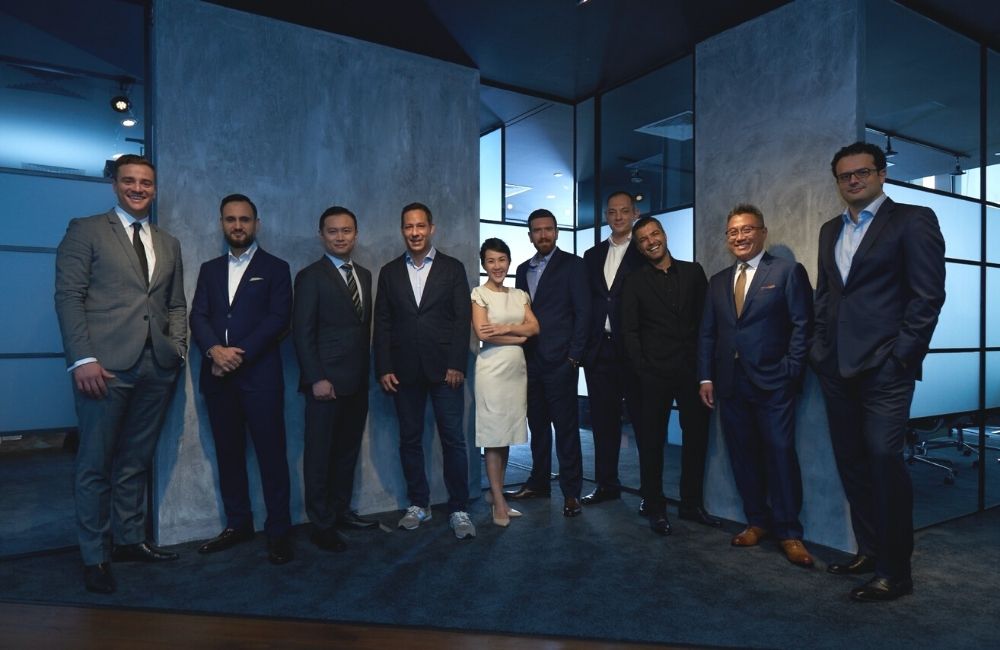INNOVATE
From Lab to Real Life: How A*STAR supported a scientist’s entrepreneurial journey

When Dr Kostas Anagnostakis started his research on internet security at A*STAR in 2005, he soon realised he was onto something big.
“There’s so much value in the data flowing through modern network infrastructure – we sometimes call it digital dumpster diving. By looking at the data, we can make observations about what is happening,” Kostas said.
With the support of A*STAR, Kostas and three other teammates began researching a technology that could trawl through reams of data and pinpoint trends and patterns – generating valuable insights into consumer behaviour.
“We were actually at the start of the so-called data revolution, though we didn’t know what it was then,” he recalled. “Video streaming was in its infancy, iPhones were just about getting popular, WhatsApp was not as stable, and people were still calling one another on regular phone numbers.”
The new technology attracted the attention of companies, especially those in telecommunications, who needed help to identify network bottlenecks and root out freeloaders. With the help of A*STAR, Kostas and his team landed a few pilot clients.
“One telco was losing a lot of money because people had figured out ways to hack the network. And this was massive because it translated into millions of dollars lost every day,” he disclosed.
This led him to start Niometrics, a network analytics company, in 2009. Today, the company’s technology is used in various ways – including quantifying mobility patterns and often unexpected digital behaviour shifts during the COVID-19 pandemic, while ensuring privacy protection through data from sources such as telcos.
The A*STAR sandbox: A safe way to start
Unlike other tech start-ups, the seeds of Niometrics were first sowed as a research project at A*STAR’s Institute for Infocomm Research (I2R).
It offered Kostas and his team the advantage of developing its solutions in a supportive environment. A*STAR’s funding and resources enabled them to perfect their services before bringing them to the clients, preventing them from making time-consuming mistakes – often a major stumbling block for many start-ups.
The team could also tap on the expertise of then A*ccelerate (now known as Enterprise), the commercialisation arm of A*STAR, to help identify industry pain points, and map out how their technology could best fill these gaps.
Kostas made the decision to spin off the company in 2009.
A*STAR’s reputation remained a valuable asset, lending credibility to the company’s solutions and services.
“In the tech world, it can be challenging to establish a name. Anybody can claim that their solutions can do many things. So people look for secondary endorsements and indirect ways of assessing whether something is for real,” he explained.
The fact that A*STAR’s brand was there indicate to people that we didn’t emerge from nothing, and it helped to anchor Niometrics.
Going global
Twelve years later, the company has grown from four employees to a staff strength of 170. Its clients include major telcos providing data services to more than 500 million people. Its work has helped telcos transform, boosting the understanding and reliability of their connectivity.
As one of the fastest-growing tech companies in Singapore, Niometrics has caught the eyes of global players, including Mobileum, a leading provider of telecom analytics solutions based in Silicon Valley.
The company continues to stand out for its laser focus on research and development.
“When you benchmark us with our competitors, we have a stronger R&D component. Because of our background as innovators, we never lost that research bias,” said Kostas. Niometrics team photo
Niometrics team photo
60 SECONDS WITH DR KOSTAS ANAGNOSTAKIS
Founder and CEO, Niometrics
Q: How would you describe your transition from a researcher to an entrepreneur?
A: It’s not such a big switch from being a researcher to an entrepreneur. As a researcher, you are like an entrepreneur in a more protected environment– you have to pitch your ideas to the target audience. You also have to manage funding for your team. You need to promote your team and recruit talent – similar things that you do in a company, but you are doing it in a research environment.
But there is also this thing called freedom when you are out on your own. It is often positioned as a good thing because you get flexibility and are accountable to just your cash flow. But you will need to earn for everything you want.
Q: When did you realise that you had developed a commercially viable technology?
A: One of the most memorable experiences for me was when we went into an enterprise’s network and got a good picture of what was going on. Many things shouldn’t be there – devices nobody knew about and inefficiencies and threats to the network. At this point, I said this is real value for the client, and it was also good validation of our technology.
Q: Niometrics is in its 12th year now. How would you describe the entrepreneurship journey?
A: Every journey has its ups and downs. There are times you get super excited about what is happening and times you are concerned with what the future might look like two or five years from now. No one knows what is going to happen. No CEO will ever give you the thumbs-up sign and tell you that everything is peachy all the time.
But it is rewarding to see progress, be it revenue, happy customers, or key project wins. We had five people, and then we had 10, 20, 100, and then we lost track. Coming from A*STAR, we gained confidence from being able to experiment in that environment. And we are now replicating this experiment with private companies.
Was the article helpful?
A*STAR celebrates International Women's Day

From groundbreaking discoveries to cutting-edge research, our researchers are empowering the next generation of female science, technology, engineering and mathematics (STEM) leaders.
Get inspired by our #WomeninSTEM
